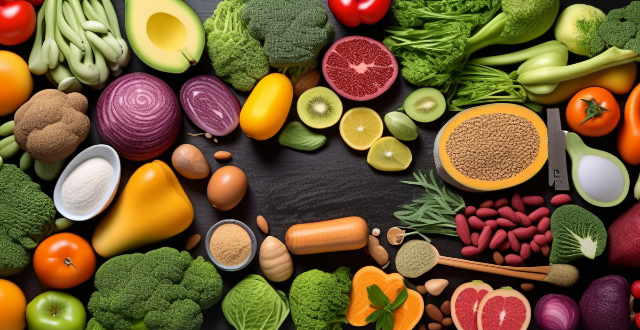A healthy breakfast should include a variety of nutrients to provide energy and support overall health. The key components are whole grains, protein, fruits and vegetables, healthy fats, and dairy or non-dairy alternatives. Whole grains provide complex carbohydrates, fiber, vitamins, and minerals. Protein is important for building and repairing tissues in the body. Fruits and vegetables provide essential vitamins, minerals, antioxidants, and fiber. Healthy fats are important for brain function and hormone regulation. Dairy products or non-dairy alternatives provide calcium, vitamin D, and other important nutrients. Simple combinations like oatmeal with nuts and fruit, a veggie omelette with whole wheat toast, or Greek yogurt with berries and granola can provide all the key components of a balanced breakfast.

Key Components of a Healthy Breakfast
A healthy breakfast should include a variety of nutrients to provide energy and support overall health. Here are the key components of a balanced and nutritious breakfast:
Whole Grains
Whole grains are an essential part of a healthy breakfast as they provide complex carbohydrates, fiber, vitamins, and minerals. Some examples of whole grains include:
- Oatmeal
- Whole wheat bread
- Brown rice
- Quinoa
- Barley
- Rye
Protein
Protein is important for building and repairing tissues in the body, and it also helps to keep you feeling full and satisfied. Some protein sources that can be included in a healthy breakfast are:
- Eggs
- Greek yogurt
- Cottage cheese
- Nuts and seeds (such as almonds, chia seeds, or flaxseeds)
- Tofu
- Lean meats like turkey bacon or chicken sausage
Fruits and Vegetables
Fruits and vegetables provide essential vitamins, minerals, antioxidants, and fiber. They also add flavor and color to your breakfast. Some options for incorporating fruits and vegetables into your morning meal include:
- Fresh fruit salad
- Smoothies made with frozen berries or bananas
- Veggie omelettes with spinach, mushrooms, peppers, or tomatoes
- Whole grain toast with avocado spread and tomato slices
Healthy Fats
Healthy fats are important for brain function and hormone regulation. They also help to keep you feeling full and satisfied throughout the morning. Some healthy fat options for breakfast include:
- Nut butters like almond or peanut butter
- Avocado
- Chia seeds or flaxseeds
- Olives
- Coconut milk or cream in smoothies or coffee
Dairy or Non-Dairy Alternatives
Dairy products or non-dairy alternatives provide calcium, vitamin D, and other important nutrients. If you choose to include dairy in your breakfast, opt for low-fat or fat-free options. Some examples include:
- Low-fat milk or unsweetened soy milk
- Greek yogurt or plain, unsweetened yogurt
- Cheese (in moderation)
Remember that a healthy breakfast doesn't have to be time-consuming or complicated. Simple combinations like oatmeal with nuts and fruit, a veggie omelette with whole wheat toast, or Greek yogurt with berries and granola can provide all the key components of a balanced breakfast.